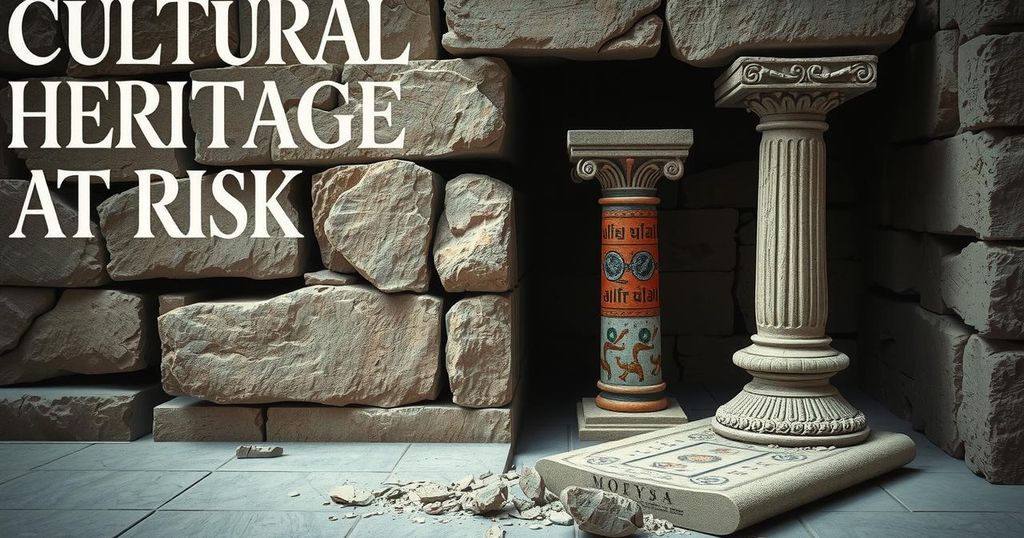Reviving the Discourse on the Nigerian Civil War: Babangida’s Perspective
General Ibrahim Babangida has re-ignited discussions about the Nigerian Civil War in his book “Journey in Service,” disputing the claim of an “Igbo Coup” associated with the conflict. He argues that deep-seated issues like ethnic injustice and a lack of accountability for past atrocities continue to affect Nigeria today. Noting the necessity for unity against oppression, Babangida warns that silence around injustices leads to future victimization. His perspective is crucial as Nigeria seeks to heal its historical wounds and foster national cohesion.
Approximately 60 years after Nigeria’s first military coup that resulted in the Nigerian Civil War, General Ibrahim Babangida, a former military leader, has sparked renewed discourse regarding this traumatic period. In his recent publication, “Journey in Service,” he challenges the narrative of the coup being an “Igbo Coup,” which he contends was propagated by Western media. Highlighting the coup plotters’ identities and the repercussions, he insists it was a broader military agenda, not limited to ethnic motivations.
Babangida’s perspective is significant due to his Northern Nigerian origins, as the coup was perceived primarily as an assault on that region. Having served in the army during the coup and later fought against Biafra, he possesses a unique insight. Furthermore, Babangida critiques the notion that Ojukwu, as the Eastern Region’s governor, was solely responsible for the war, attributing the impetus for Biafran secession to Gowon’s failure to protect the lives of Igbos in the North, following the Aburi Accord’s breach.
The repercussions of the civil war continue to plague Nigeria, as issues like ethnic injustice and devaluation of life persist. Babangida notes that Gowon’s inability to safeguard Igbo lives during the 1966 massacres, coupled with the tacit approval of violence from other regions, fueled the conflict. The ongoing injustices, including Babangida’s own annulment of the June 12, 1993 election, echo historical grievances, leading many to perceive injustice in Nigeria as being distributed unevenly.
The failure to hold accountable those responsible for the 1966 murders has allowed similar atrocities to recurrences, with a grim historical pattern emerging. While atrocities in other regions of the world have led to accountability, Nigeria’s unresolved conflicts foster a dangerous precedent where violence appears tolerated and victims neglected. Thus, silence regarding injustices implicates society, setting the stage for future victimization.
Instances of betrayal and oppression necessitate introspection, as past grievances illustrate a cycle of injustice. Comments made during various protests, whether regarding Saro-Wiwa’s execution or the frustrations surrounding Abiola’s political demise, highlight a collective denial of the brutality faced by individuals who challenge systemic injustices. It is imperative to recognize that all acts of violence, regardless of the victim’s identity, contribute to a broader societal deterioration.
Nigeria’s future hinges on dismantling the adversarial perspective that leads to violent conflict. Individuals must cease justifying oppression based on prejudice, understanding that neglecting one group’s suffering can invite similar suffering upon themselves. As articulated by Martin Niemöller, the failure to speak out in the face of injustice leaves a void that can ultimately lead to one’s own downfall.
Averting further division requires a commitment to justice and equality, fostering a united front against oppression. Each act of brutality diminishes national coherence, perpetuating cycles of mistrust and potential conflict. Addressing the wounds of Nigeria’s past is essential for healing and ensuring a cohesive future.
In summary, General Ibrahim Babangida’s recent insights into the Nigerian Civil War underscore the continued relevance of historical injustices that plague contemporary Nigeria. He asserts the need for accountability and a collective repudiation of ethnic violence. The commentary highlights the cyclic nature of oppression and the necessity for a unified stance against injustice to pave the way for a harmonious future. Understanding the past is vital for healing and promoting societal trust and progress.
Original Source: punchng.com







Post Comment